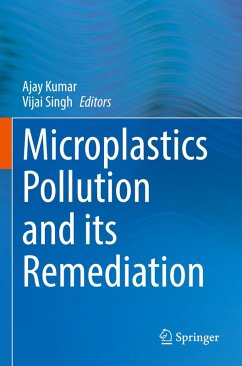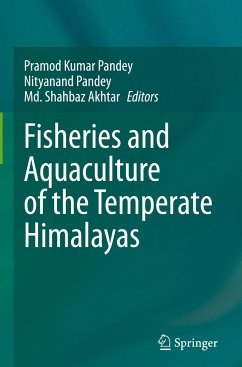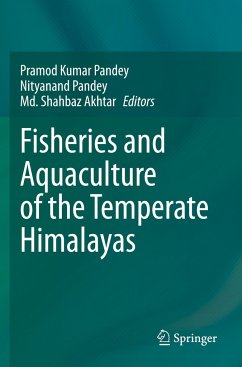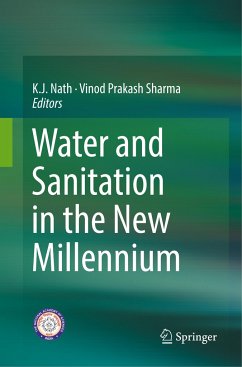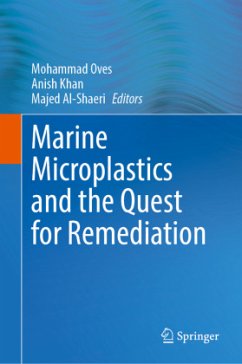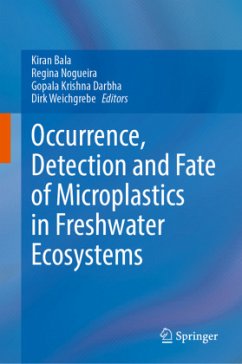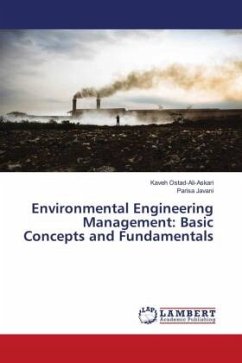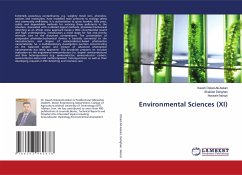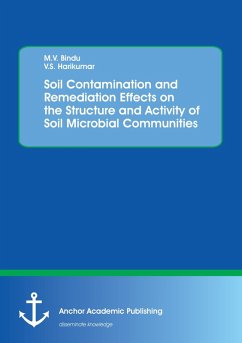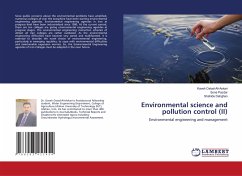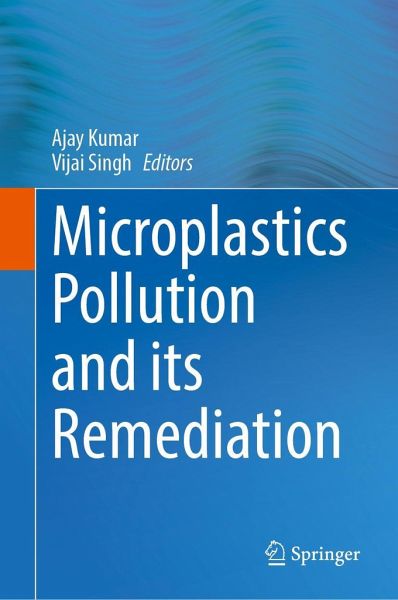
Microplastics Pollution and its Remediation

PAYBACK Punkte
76 °P sammeln!
The book elaborates on microplastics as a global concern, prompting the need for comprehensive understanding and effective management. It thoroughly explores the various aspects of microplastics, addressing their detection, separation, and contamination in diverse ecosystems. The introductory chapter highlights the global risks associated with microplastics while presenting the challenges and opportunities in tackling this issue. It focuses on the detection techniques employed to identify microplastics, providing insights into the analytical methods and technologies utilized in their character...
The book elaborates on microplastics as a global concern, prompting the need for comprehensive understanding and effective management. It thoroughly explores the various aspects of microplastics, addressing their detection, separation, and contamination in diverse ecosystems. The introductory chapter highlights the global risks associated with microplastics while presenting the challenges and opportunities in tackling this issue. It focuses on the detection techniques employed to identify microplastics, providing insights into the analytical methods and technologies utilized in their characterization. It delves into the separation techniques used to extract microplastics from complex environmental matrices, aiding in their accurate quantification and analysis. The subsequent chapters examine the presence and impact of microplastics in specific ecosystems, including aquatic and terrestrial. It investigates the prevalence of microplastics in water bodies and their detrimental effects on aquatic organisms and elucidates their distribution, transport, and ecological implications on land-dwelling organisms. The book further explores microplastics' occurrence in foods, cosmetics, and air pollution and associated health hazards. It delves into the lesser-known aspects of microplastics influence on nitrogen cycling and nitrous oxide emissions, offering valuable insights into their impact on biogeochemical processes. It discusses microplastics environmental risks and hazards, covering the ecological, biodiversity, and ecosystem-level impacts caused by these persistent pollutants. The concluding chapters focus on sustainable management strategies for mitigating and controlling microplastics proliferation and associated risks.
This book provides a comprehensive and multidisciplinary approach for understanding and addressing the challenges posed by microplastics. It serves as a valuable resource for researchers, policymakers, environmentalists, and anyone concerned about the impact of microplastics on planet. This book aims to foster sustainable management practices and contribute to a cleaner and healthier environment by unraveling microplastics complexities.
This book provides a comprehensive and multidisciplinary approach for understanding and addressing the challenges posed by microplastics. It serves as a valuable resource for researchers, policymakers, environmentalists, and anyone concerned about the impact of microplastics on planet. This book aims to foster sustainable management practices and contribute to a cleaner and healthier environment by unraveling microplastics complexities.





